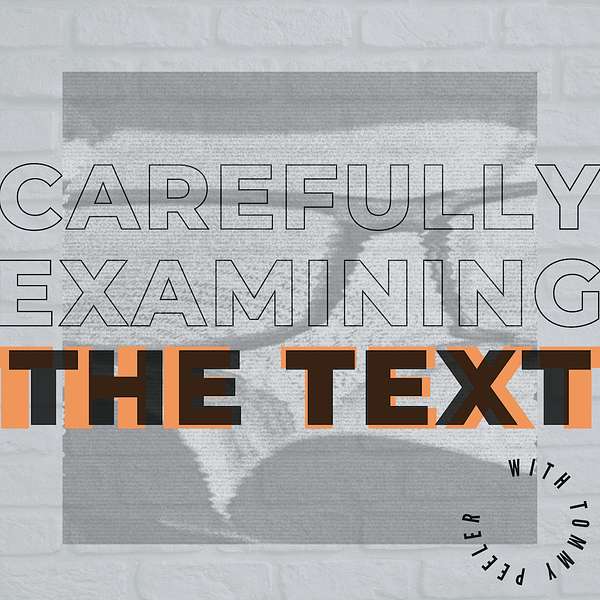
Carefully Examining the Text
Carefully Examining the Text
Psalm 99
What does this Psalm show us about the nature of God?
99:1 God is a king who reigns over the whole earth and all peoples- 99:1, 2.
99:2, 3 The LORD is great
99:2, 5, 9 Though God of all the earth, God reveals Himself in a special way in Zion, His holy footstool or hill.
99:4 God is a God of justice, righteousness- Ps. 89:14; 97:2; and equity- 96:10; 98:9
99:3, 5, 9 God is holy. Where He reveals Himself is His holy hill- 99:9.
99:6, 8 God is a God who answers prayer- Psalm 65:2. “The Lord revealed that He hears and responds faithfully to the cries of His people. The exalted King is not detached and distant from His subjects, but He is interested and involved in their lives” Estes, 238.
99:7 God reveals His will and His words to His people- “There was two-way communication between the Lord and His people, as human intercessors addressed the Lord on behalf of the people and the Lord communicates His decrees and statutes from them to obey” Estes, 238.
99:8 God is forgiving. “The Lord’s forgiveness does not fall short of justice; but it goes beyond justice to grace” Estes, 239. Ex. 34:7; Num. 14:18
99:8 God is an avenging God- Deut. 32:35 noun vengeance in Vengeance is mine
“Forgiveness without chastening would make us complacent, and chastisement without forgiveness would make us despair. Forgiveness without discipline would make us spoilt children; discipline without forgiveness would break our hearts. Together they guarantee that while we can treat forgiveness as certain, we can never treat sin and negligible” Motyer, 550.
“When we praise God, we praise all of God’s acts, the acts of grace and the acts of punishment. We praise God for holding us accountable. This makes praise a weighty matter, a serious business, an act to be understood and contemplated, instead of mindlessly given” NICOT, 732-733.
Jesus and Psalm 99
99:5, 9 Exalt is the Greek word used in John 3:14; 8:28; 12:32, 34 for Jesus lifted up at the cross and Acts 2:33; 5:31 for being lifted up in the ascension.
99:8 “God’s holiness ultimately involves not God’s avoidance of sin and sinners, but God’s willingness to bear the burden of sin (v. 8; the Hebrew word translated ‘forgiving’ means lit. ‘to bear,’ ‘to carry’ and to love sinners” McCann, 1076. Isaiah 53:4, 12. He has borne or carried our griefs and borne our sins.
99:3 Let them praise is Let them acknowledge or confess in the LXX and is the word used in Rom. 14:11 and Phil. 2:11.
99:5, 9 Worship is applied to Jesus when people bowed down to Him but also in some cases which clearly seem to involve worship- Matt. 14:33; 28:9, 17; Luke 24:52; Heb. 1:6.
99:6 Called on His name- Acts 7:59; 22:16; Rom. 10:12-13; I Cor. 1:2
“The theology of Psalm 99 is incarnational. God is involved with a particular place (vv. 1-2, 5, 9) and with a particular people (vv. 6-8) in the struggle for justice and righteousness (v. 4) …Replacing Zion and the Temple (Mark 13:1-2; 14:58; 15:29), Jesus become the earthly locus of God’s presence and power, the focus and revelation of God’s glory (see John 1:14-18). The incarnation of Jesus is the ultimate redefinition of holiness: God resides in human flesh!...God sovereignty is manifested ultimately in suffering love, a manner that appears to the world to be weakness (see I Cor. 1:22-25; II Cor. 12:9)” McCann, 1076.
“These psalms throb with latent, if not overtly expressed anticipation of a new coming of Yahweh. He is coming to judge the world” Tate, 532. Acts 17:30-31; II Cor. 5:10.